WHY THIS IS THE GREATEST OPPORTUNITY IN BUSINESS HISTORY
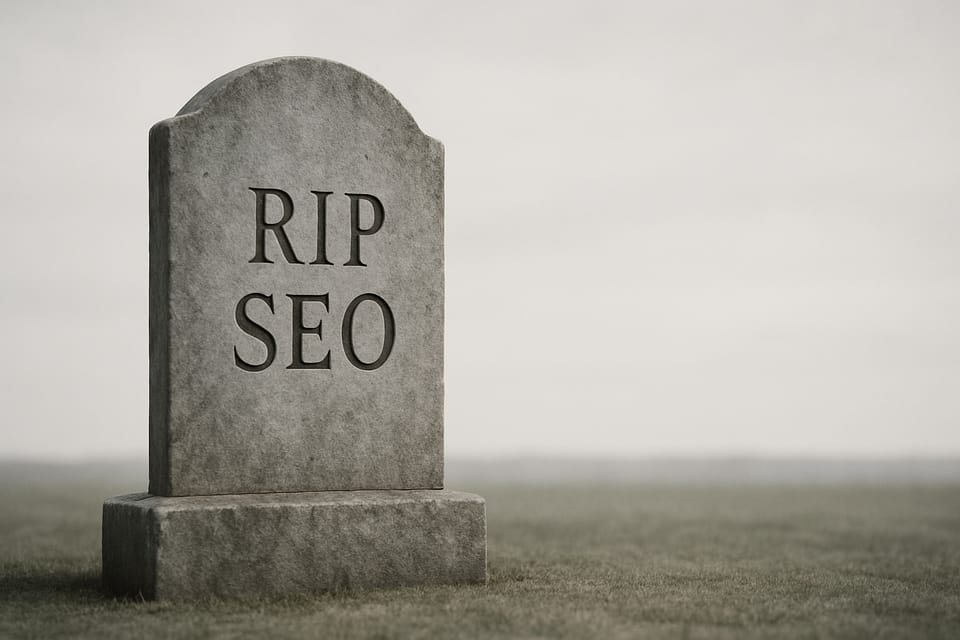
The game has changed completely.
Traditional SEO is dead. And honestly, it's about time.
What we're witnessing isn't just another algorithm update or marketing trend - it's the fundamental transformation of how people discover and consume information. Google is no longer a search engine that sends users to websites. It's become a closed system that provides comprehensive answers within its own platform, eliminating the need for users to click through to external sources.
This shift represents both the end of an era and the beginning of the greatest business opportunity in decades.
THE BRUTAL REALITY: GOOGLE HAS BECOME A CLOSED SYSTEM
Digital marketing has never seen a shift this fundamental.
Google is no longer a search engine - it's a large language model that keeps users within its ecosystem rather than sending them to websites.
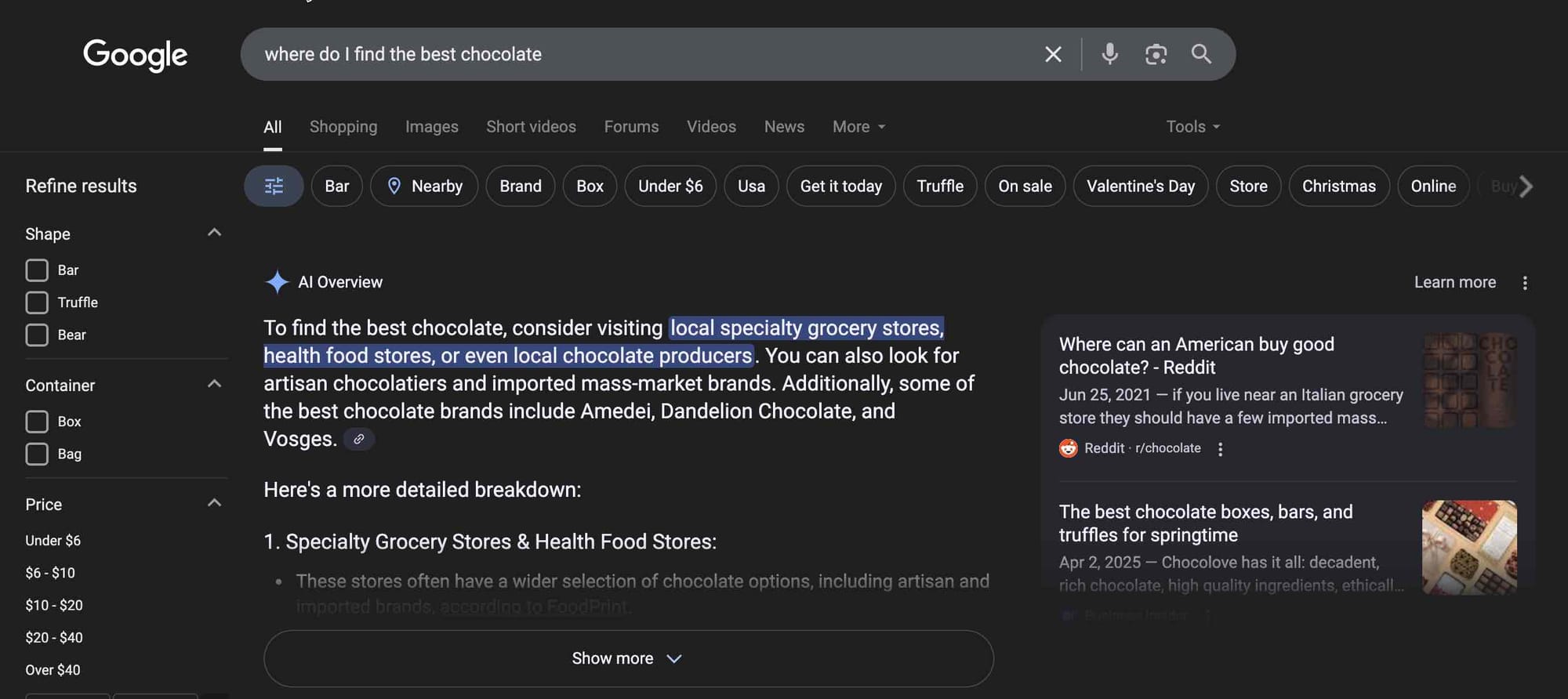
The numbers tell the story.
Zero-click searches now represent the majority of queries.
When someone searches for "best practices for healthcare AI implementation," Google's AI provides a comprehensive answer pulled from multiple sources, synthesized into a single response. Users get their answer without ever clicking through to the original content creators.
The traditional SEO model assumed that ranking #1 meant winning. That assumption is now obsolete. Even if you rank #1, you might get zero clicks because the AI already answered the question above your listing.
This isn't coming - it's here. And it's accelerating.
NATHAN GOTCH'S 10-SECOND TEST: IF AI CAN CREATE IT, DON'T
Nathan Gotch introduced a brilliant filter that separates winners from losers in the new landscape: Can AI generate this exact content in 10 seconds?
If the answer is yes, you're wasting your time creating it.
Think about most SEO content today. "10 Tips for Better Customer Service." "How to Choose the Right Marketing Agency." "Best Practices for Remote Work." These are exactly the types of generic, templated articles that AI can produce instantly - and often better than humans who are rushing to hit publishing quotas.
But here's what AI can't do: It can't replicate the specific conversation between a healthcare CEO and their IT director about the challenges of implementing AI in a hospital with decades-old infrastructure.
It can't capture the nuanced decision-making process that leads a small manufacturer to invest heavily in new equipment.
It can't synthesize the tacit knowledge gained from actually running operations, managing teams, and solving actual problems.
Your competitive advantage isn't in your ability to create content. It's in your ability to share experiences, insights, and institutional knowledge that only you possess.
THE GOLDMINE SITTING IN YOUR ORGANIZATION
Every business has a treasure trove of content that AI simply cannot replicate. The problem is that most organizations don't recognize this goldmine or don't know how to extract and distribute it effectively.
Consider what happens inside your company every day.
Your customer service team fields questions that reveal market needs your competitors don't understand. Your operations team solves problems that haven't been documented anywhere online. Your sales team hears objections and concerns that represent genuine market insights. Your leadership team makes strategic decisions based on information and experience that doesn't exist in any training dataset.
This is your content strategy.
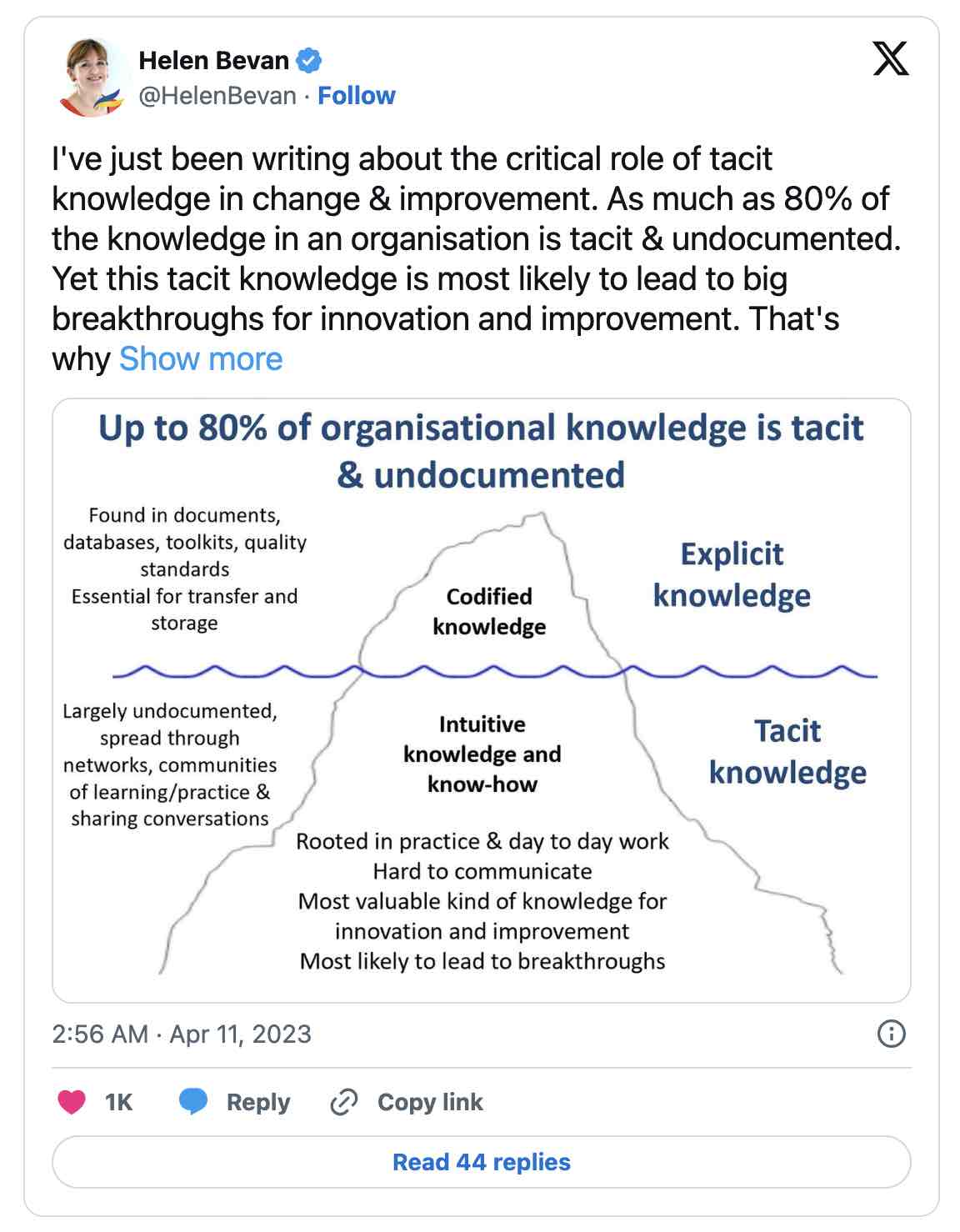
Healthcare organizations working on AI implementation aren't sharing generic "best practices" - they're sharing the specific conversations between CMOs and physicians about adoption concerns and the exact frameworks developed to address those concerns.
That's content AI cannot create because it requires lived experience.
Artisanal food producers aren't regurgitating information from industry publications - they're sharing what happens when expensive equipment breaks down during peak season and how quality gets maintained under pressure.
That story, with its specific details and emotional journey, is impossible for AI to fabricate.
THE OMNI-PLATFORM REVOLUTION
Traditional SEO focused on a single platform: Google search results.
The new reality requires a fundamental shift in thinking from "How do I rank my website?" to "How do I dominate this topic everywhere my customers look for information?"
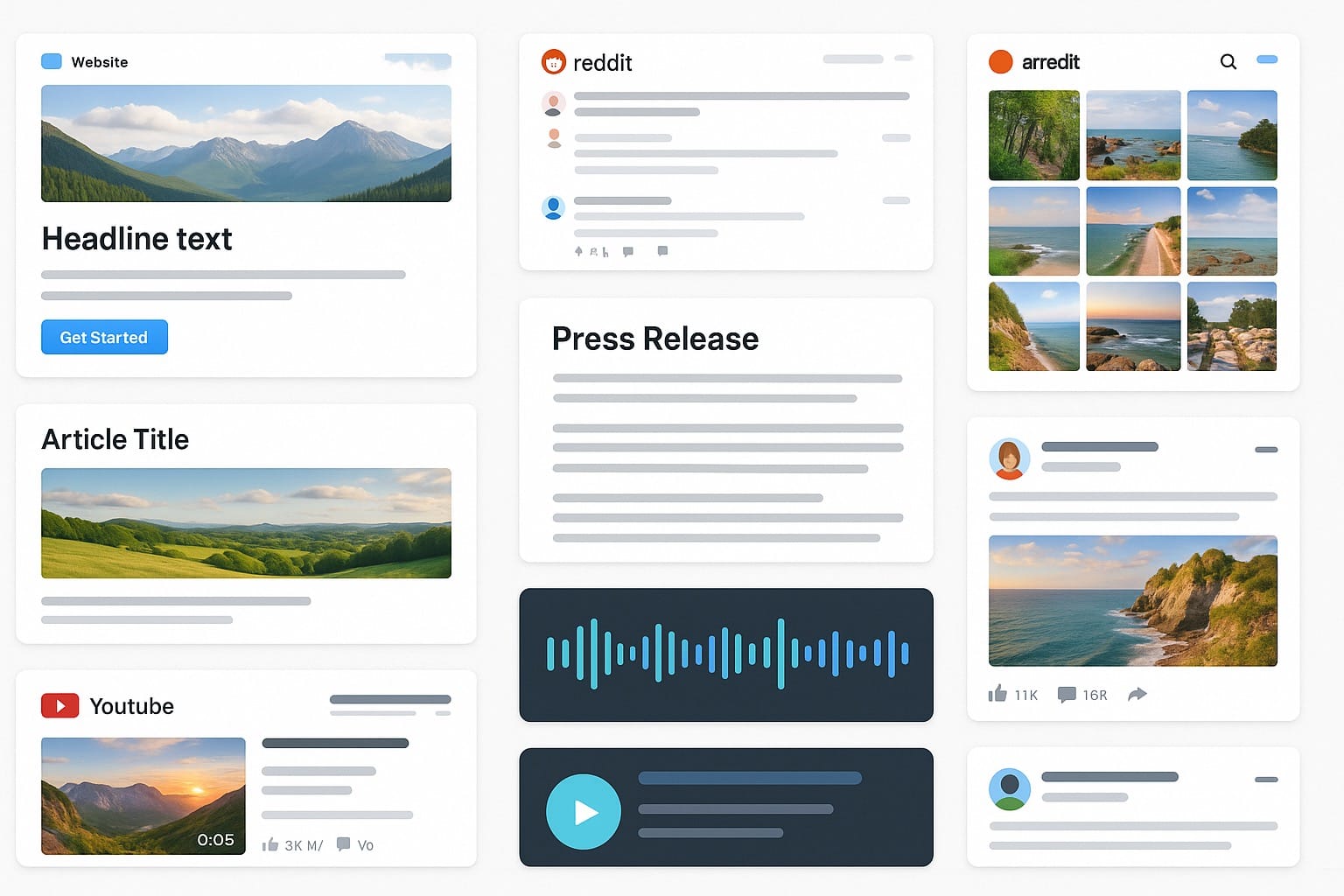
This isn't just about being on multiple platforms - it's about creating an interconnected web of authority across every channel where your audience consumes content.
When someone asks ChatGPT about healthcare AI implementation, your insights should appear in the response. When they search on LinkedIn for digital transformation strategies, your thought leadership should dominate the results. When they browse Reddit for real-world experiences with business process optimization, your authentic contributions should be the top responses.
The businesses that win will be those that create topic authority across platforms rather than website supremacy on a single platform.
Consider the power of this approach: Instead of hoping someone finds your website through a Google search, you become the authoritative voice that AI systems reference when answering questions in your domain.
Your expertise becomes embedded in the knowledge layer that powers these systems.
THE MIDDLE-MAN ELIMINATION OPPORTUNITY
For decades, local businesses and manufacturers faced a frustrating reality: they had to compete through middlemen to reach their customers.

Affiliate marketers would rank above them for their own product names. Distribution networks would control customer relationships. Review sites would monetize their customer interactions.
The shift to AI-powered search creates an unprecedented opportunity to eliminate these intermediaries.
When someone researches a product category, compares options, and makes a purchase decision, they can now do all of this within a single AI-powered platform. The friction of clicking through multiple websites, comparing information across different sources, and navigating various purchase processes disappears.
But here's the critical insight: the businesses that will capture this direct-to-consumer opportunity are those that take part in creating the content journey that leads customers to their solution.
If you're a local chocolate manufacturer, you need to be the voice that AI systems cite when someone asks about artisanal chocolate production, flavor profiles, or gift recommendations. If you're a healthcare technology company, your insights need to appear when someone researches implementation challenges, ROI considerations, or vendor comparisons.
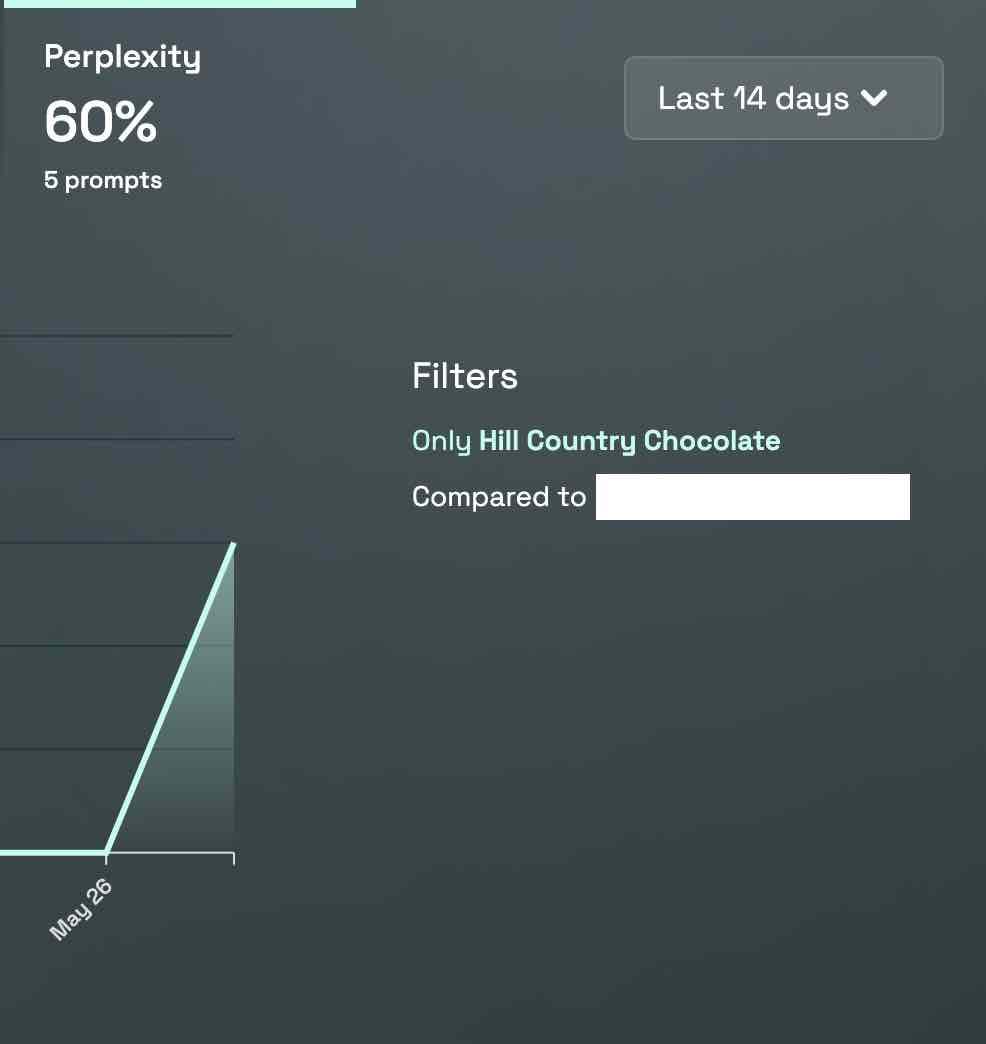
The businesses that create valuable, experience-based content across multiple platforms will be the ones that AI systems reference and recommend.
Those that wait for customers to find them through traditional channels will become invisible in an AI-mediated world.
THE PRECISION ADVANTAGE
Traditional marketing required broad targeting and hoped for the best.
You'd create content for "healthcare executives" and hope the right people found it. You'd advertise to "business owners aged 35-55" and accept that most impressions were wasted.
AI-powered platforms can deliver unprecedented precision. When someone asks a specific question about a specific challenge in a specific industry, AI can surface exactly the right content from exactly the right expert.
The match between customer intent and business solution becomes precise rather than probabilistic.
This precision creates opportunities for businesses that historically couldn't compete with larger, better-funded competitors.
A local business with deep expertise in a specific niche can dominate that niche across AI platforms more effectively than a large corporation with generic content.
The key is understanding that this precision requires specificity in your content creation. Generic advice and broad topics won't cut through the noise. Specific insights, detailed case studies, and nuanced perspectives will.
THE PLAYBOOK FOR WINNING
While there isn't a universal playbook for GEO success, there are clear principles that successful businesses are following:
First, audit your organizational knowledge.
What unique insights, experiences, and expertise exist within your company that haven't been documented or shared externally? Start with the conversations your team has daily that reveal market insights, operational knowledge, or strategic thinking that competitors don't possess.
Second, apply Nathan Gotch's 10-second test to every piece of content you consider creating. If AI can generate it quickly, either don't create it or find a unique angle that requires your specific experience and perspective.
Third, develop platform-specific content strategies. LinkedIn rewards professional insights and industry expertise. YouTube values educational content and process demonstrations. Reddit appreciates authentic experiences and real-world advice. Each platform has its own culture and content preferences.
Fourth, create cross-platform content ecosystems. One piece of unique insight should be adapted and distributed across multiple platforms, with each version optimized for that platform's audience and format preferences.
Fifth, measure AI visibility rather than traditional metrics. Instead of tracking keyword rankings and organic traffic, monitor how often your insights appear in AI-generated responses across different platforms and queries.
THE INSTITUTIONAL KNOWLEDGE ADVANTAGE
Large organizations have a massive advantage in this unfamiliar landscape that most don't recognize: institutional knowledge.
The accumulated wisdom, processes, case studies, and insights that exist within established companies represent content gold mines that startups and competitors can't replicate.
The challenge is that most of this knowledge exists in people's heads, internal documents, and undocumented processes. The organizations that systematically extract, organize, and distribute this knowledge will dominate their industries in AI-powered search results.
Consider a healthcare organization that has successfully implemented electronic health records across multiple facilities. The specific challenges they encountered, solutions they developed, and lessons they learned represent valuable content that healthcare AI systems should reference when answering implementation questions.
But only if that knowledge is documented and distributed effectively.
The same principle applies to any industry.
Manufacturing companies have operational insights that could guide others. Professional services firms have client case studies that demonstrate proven approaches. Retail businesses have customer behavior observations that reveal market trends.
THE FIRST-MOVER ADVANTAGE
We're in the early stages of this transition, which creates enormous opportunities for businesses that act quickly.
AI systems are still learning which sources to trust and reference.
The content that gets created and distributed effectively over the next 12-18 months will have lasting influence on how these systems respond to queries in your industry.
This isn't a typical marketing trend you can wait to see how it develops. The businesses that establish authority in AI systems now will compound that advantage over time. Those that wait will find themselves trying to overcome established authority patterns that favor early adopters.
The good news is that this transition rewards quality over quantity, expertise over volume, and authenticity over optimization.
The skills required to succeed - deep knowledge, clear communication, and consistent value creation - are skills that serious businesses already possess.
THE OPTIMISTIC FUTURE
While the death of traditional SEO represents the end of one era, it marks the beginning of a more exciting and fair opportunity landscape.
For the first time in internet history, authentic expertise and valuable insights can compete directly with well-funded but generic content strategies.
Local businesses can compete with national chains by demonstrating superior knowledge and experience. Specialized service providers can dominate their niches by sharing unique insights that larger competitors can't replicate. Individual experts can build authority that competes with corporate marketing budgets.
The businesses that thrive will be those that recognize this shift as an opportunity rather than a threat.
Instead of mourning the loss of traditional SEO, they'll embrace the democratization of content authority that AI-powered platforms represent.
The future belongs to businesses that can articulate their unique value, share their authentic expertise, and distribute their insights across the platforms where their customers seek information.
The technical barriers to entry are lower than ever, but the requirement for genuine expertise and valuable perspectives is higher than it's ever been.
This isn't just about adapting to change - it's about recognizing that for the first time in business history, authentic knowledge and actual experience can compete directly with marketing budgets and SEO manipulation.
The businesses that embrace this reality won't just survive the death of traditional SEO - they'll use it as the foundation for building something far more valuable and sustainable.

Member discussion